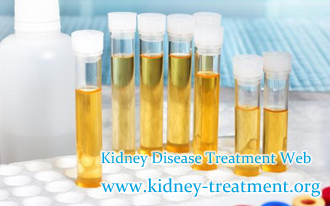Will Hormones Cure Nephrotic Syndrome
2019-04-10 09:32
 Large doses of hormones can inhibit immunity and anti-inflammation in the treatment of nephropathy.
Large doses of hormones can inhibit immunity and anti-inflammation in the treatment of nephropathy.
For nephrotic types with severe pathological types and poor prognosis, such as acute progressive nephritis, acute allergic interstitial nephritis, and some nephrotic syndrome (severe mesangial proliferative nephritis, minimal change nephropathy), they have a quick effect, and even can pull patients back from the death line at critical moments. It has also made great contributions.
Patients with nephrotic syndrome treated with hormones are often divided into the following three types:
1. Hormone-sensitive type
The symptoms of a single episode can be quickly relieved after 2-12 weeks of hormone therapy, but it is relatively easy to relapse. Usually, the number of relapses in half a year is more than 2 times and that in one year is more than 3 times. Recurrence is often brought about by the treatment before nearly zero, re-visit, secondary injury to the kidney, accelerate the rate of deterioration of the disease.
2. Hormone-dependent
Hormone therapy is effective, but it is easy to relapse in the course of hormone reduction.
Such patients should slow down the rate of dose reduction, such as minimal change nephropathy. After 8 to 12 weeks of treatment, they begin to slow down. When prednisone is 20 mg a day, they gradually transit to medication every other day.
The total course of treatment lasts for one year. Immunosuppressive agents can also be used in combination to facilitate hormone reduction. To avoid infection, allergic reaction, overwork and other factors easily lead to recurrence of the disease, patients should do a good job of prevention in peacetime.
3. Hormone resistance type
Hormone-resistant type refers to patients who are ineffective after 8-12 weeks of conventional dose hormone therapy or initial hormone therapy, and who are ineffective after relapse.
Infections such as chronic laryngopharyngitis and respiratory tract infections are important factors for hormone resistance in patients with recurrent disease. Patients themselves, such as severe gastrointestinal dysfunction and high edema, can also affect drug absorption and cause hormone resistance.
In summary, hormone therapy is effective, but easy to relapse. Some patients are not suitable for hormone therapy. In the course of treatment, hormone can only play half of the role.
If you want to avoid the recurrence of the disease, you might as well add some traditional Chinese medicine preparations or fumigation, bath, moxibustion and other traditional Chinese medicine methods to hormone therapy, add a layer of "protective film", alleviate the side effects of hormones, and improve renal microcirculation and ischemia and hypoxia, reduce the number of recurrences of the disease, thus delaying the deterioration of the disease, which can also play a role in patients with ineffective hormone therapy.
E-mail: kidney-treatment@hotmail.com
- Tag: Nephrotic Syndrome Hormones Cure
- Pre: How To Do Appropriate Exercise For Patients With Urine Occult Blood
- Next: None
